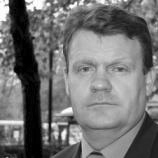Dzhokhar Tsarnaev convicted of Boston Marathon bombing
The jury will now decide if the 21-year-old will face the death penalty or receive a life sentence in prison.

Dzhokhar Tsarnaev has been found guilty of killing three people and injuring 264 in the 2013 bombing of the Boston Marathon, as well as fatally shooting a police officer four days later.
Tsarnaev was tried on a 30-count indictment, with 17 of the charges carrying the death penalty. The jury that found him guilty on Wednesday will now decide whether the 21-year-old former student should be sentenced to death or life in prison without possibility of parole.
Jurors spent just over 11 hours evaluating Tsarnaev’s guilt in two days of deliberations, following 16 days of testimony.
Defence lawyers have admitted that Tsarnaev committed the crimes of which he stands accused but said that he did so at the bidding of his older brother Tamerlan, 26, who died following a gunfight with police in Watertown, Massachusetts during the brothers’ getaway attempt.
During the penalty phase, Tsarnaev’s lawyers will present so-called mitigating evidence they hope will save his life. That could include evidence about his ethnic Chechen family, his relationship with his brother, and his childhood in the former Soviet republic of Kyrgyzstan and later in the volatile Dagestan region of Russia.
Prosecutors laid out claims that the defendant had written a note in the boat where he was found hiding suggesting the bombing was an act of retribution for US military campaigns in Muslim-majority countries.
The two shrapnel-packed pressure-cooker bombs that exploded near the marathon’s finish line on April 15, 2013, killed three spectators and wounded more than 260 other people.
NOTES FROM OUR CORRESPONDENT
 |
| Al Jazeera’s Alan Fisher |
The verdict in the Boston Bombing trial really comes as no surprise. The defence opened its case by admitting Dzhokhar Tsarnaev was one of the Boston Bombers. “It was him.” Three people were killed, hundreds were injured and a city was scared. Each death, each injury was a tragedy, a personal story of heartache and pain on a day that traditionally brought joy and pride to the city.
A police officer was also killed in a shootout as the brothers tried to escape one of the biggest manhunts in American history, a search which essentially shut down a major city for days.
The evidence was overwhelming. Forensics, eyewitnesses, video footage all tied the 21-year-old to the awful events at the end of the city’s prestigious marathon almost exactly two years ago. Tsarnaev could be seen with his brother planting the bombs and walking away.
The defence knew it could never create a reasonable doubt to beat the case. But with 17 of the 30 charges carrying the death penalty, their intention was to keep their client alive; to have him sentenced to life imprisonment rather than face the death penalty.
In this federal hearing, there are two phases of the trial. The first is now done and dusted. Tsarnaev is guilty on all 30 charges. Now the same jury will decide on the penalty.
The defence will seek to build a case that their client acted under the influence of his older brother, that Tamerlan Tsarnaev was the dominant personality who looked up “jihadi” websites on the internet, who planned the operation and who guilted or forced his brother to join in.
It’s unlikely Dzhokhar Tsarnaev will take the stand himself. He has said little during the hearing. He has been quiet and respectful throughout the proceedings. That is an image the defence don’t want to challenge.
It just needs to convince one juror of that version of the story. It takes an unanimous decision to impose the death penalty.
Massachusetts itself has banned executions – but this is a federal trial. And the government wants the maximum sanction here.
Poll after poll says the people of the Boston area oppose the death penalty. The Catholic Church – which is still strong in the area – does also.
The defence will be hoping that is reflected in a jury which has a difficult, emotional decision to make.
If the Boston Bomber spends the rest of his life in jail they feel they will have done the best they could for their client.